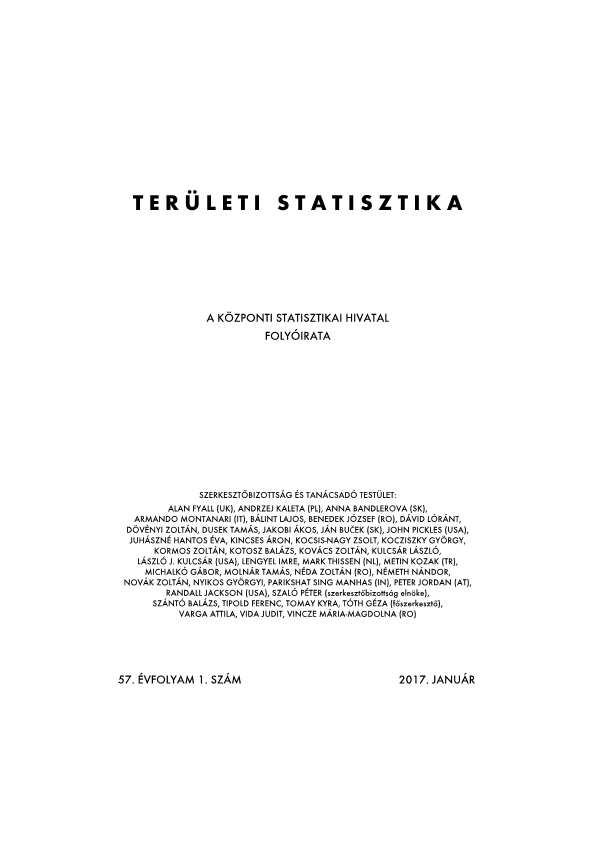A hálózati és a lokalizált tudásáramlás különbségei
Európában
Differences of network and localized knowledge flow in Europe
Author(s): Attila Varga, Tamas SebestyenSubject(s): Social Sciences, Economy, Geography, Regional studies
Published by: Központi Statisztikai Hivatal
Keywords: patents; regional development; Ego Network Quality (ENQ) index; spatial econometrics; EU Framework Programmes; innovation
Summary/Abstract: In this study the effect of extra-regional knowledgetransferred by the EU Framework Programmes onregional patent activity are examined. Earlieranalyses have not shown significant correlationbetween the knowledge available through FrameworkProgrammes and regional patent activity. Inour hypothesis this is because the examinationshave not taken into account the alteringcharacteristics of knowledge production of theCentral and Eastern European (CEE) regions, thatjoined the EU in 2004. In order to take this spatialregime effect into account, our analysis was carriedout on two sample-sets of European regions. Inthe first sample-set those CEE regions wereincluded, which met the first objective (i.e. theGDP per capita is lower than 75% of the EUaverage), the second sample-set contained all otherregions (WE). Broad thematic areas of FPs wereexamined, covering biology, life sciences andresearches in the field of biomedical science in theperiod between 2000 and 2009. The effect ofknowledge transfer, realized within the frameworkof research cooperation, was measured by theearlier developed Ego network quality index, andusing systematic spatial panel econometricsmethodology the potential local knowledge flowswere also controlled. Between the two sample-setssignificant differences can be observed regardingresources they rely on in innovation. While in caseof the CEE regions the accessible knowledgethrough FPs positively contributed to the efficientuse of funds received for research, in the WEregions this source of knowledge did not representa significant element of knowledge production.Similarly differred the two regions from each otherin respect of extra-regional, but localizedknowledge flows. While this kind of an inputappears as a positive element to the production ofknowledge in the WE regions, this impact cannotbe detected in the CEE region.
Journal: Területi Statisztika
- Issue Year: 57/2017
- Issue No: 01
- Page Range: 24-51
- Page Count: 28
- Language: Hungarian

